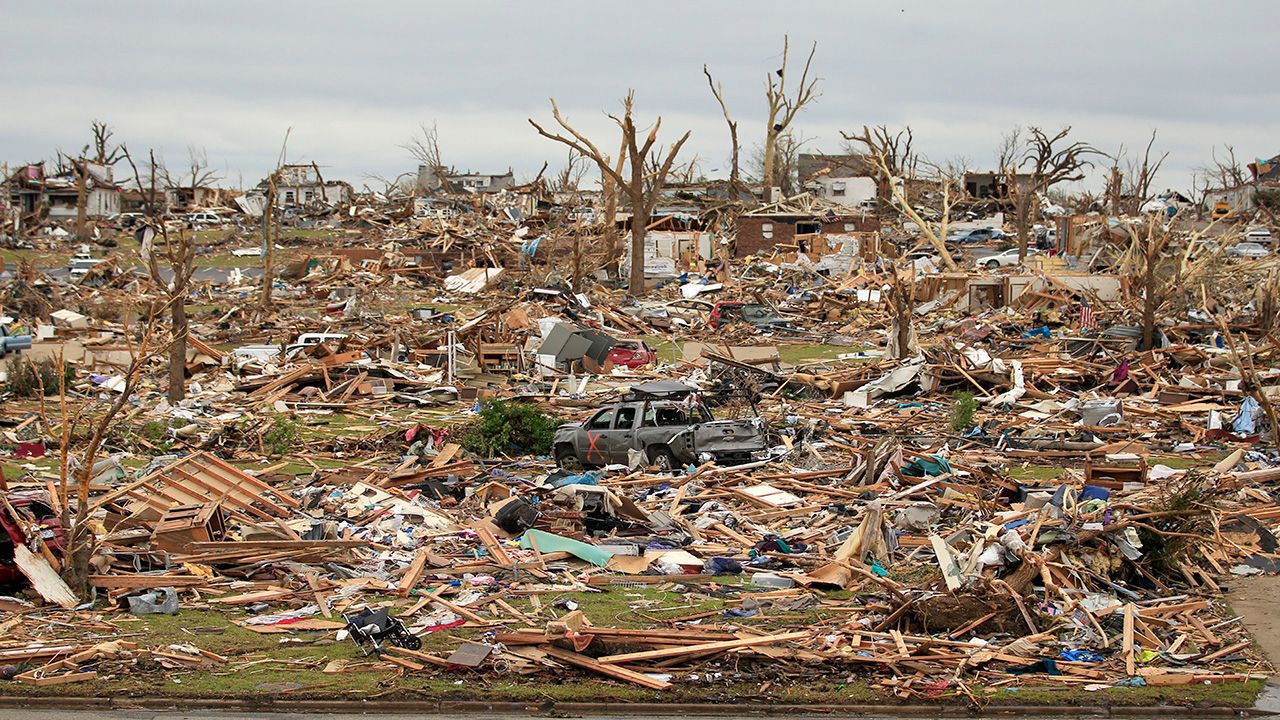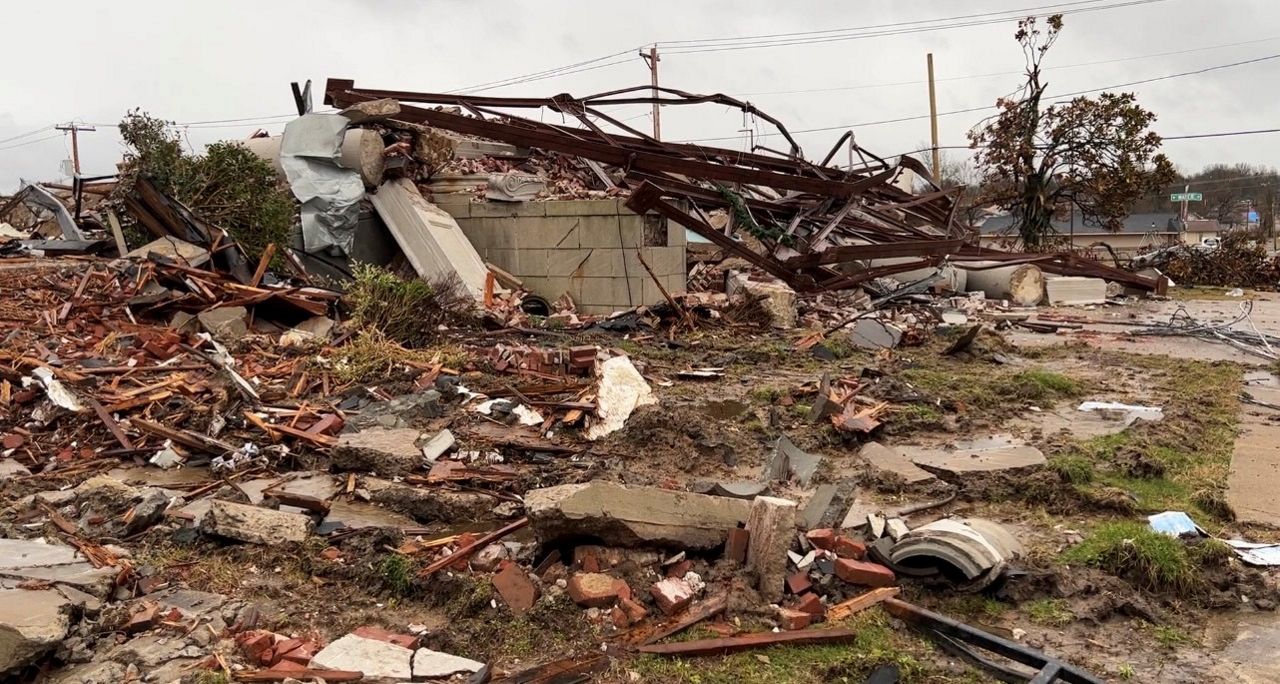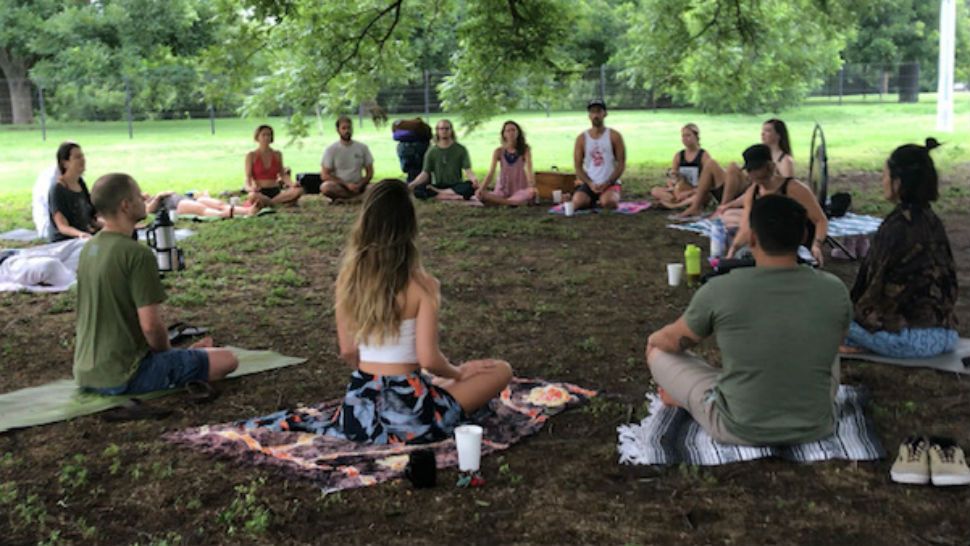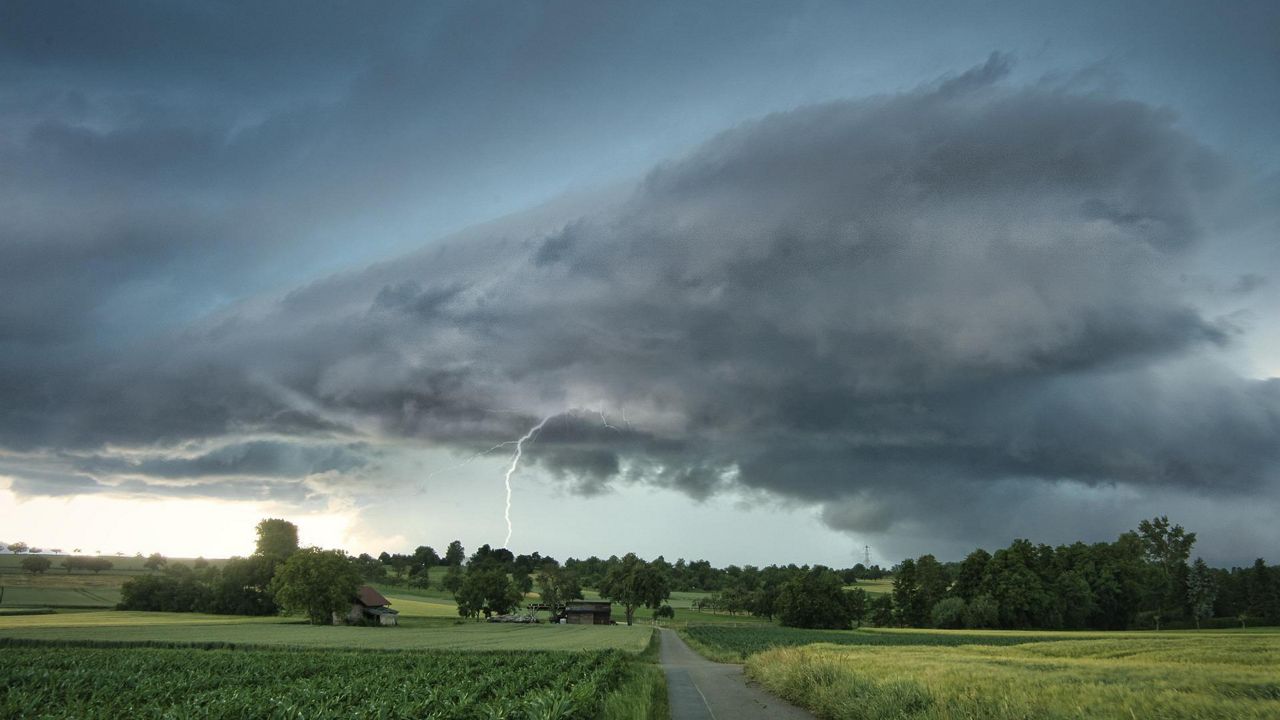As a kid growing up in Maryland, we experienced severe weather, but not like the severe weather in Missouri, where I live now. Maybe a thunderstorm would produce gusty winds that would knock down a tree or drop some small hail.
But tornadoes… Those didn’t happen frequently, so it’s not something I really focused on daily. That is, until Oct. 18, 1990.
I remember staying after school for Girl Scouts and, suddenly, the leaders ushered us to the basement.
We could hear thunder but thought nothing of it. The lights went out, but a few moments later, they came back on and it was business as usual.
My mom picked me up, and as we drove home, we saw the damage. A roof was ripped off an apartment complex, and there was debris everywhere.
My mom explained a tornado had touched down and caused the damage.
The National Weather Service rated this tornado as an F-3 on the Fujita scale (we now use the Enhanced Fujita scale), which means it was quite destructive.
My house and neighborhood sustained no damage, but this storm provoked a fear in me.
Why did that thunderstorm produce a tornado? Were all thunderstorms going to produce a tornado?
For years, I was so anxious that every thunderstorm would generate a tornado. I would frequently wake my family in the middle of the night at the first rumble of thunder to go down to the basement.
My parents assured me we were safe and told me to research. Using our Funk and Wagnalls encyclopedias, I began reading everything I could about meteorology and ended up turning my fear into a career.

This childhood fear of weather is not unusual. Jenny Hoffman, MA LCSW, helps children understand and learn to cope with weather anxiety.
She is an anxiety specialist trained in Cognitive Behavioral Therapy (CBT), which is highly effective in treating worries like weather, but she sort of fell into the weather part by accident.
"I never really imagined myself working specifically with weather fears, but working in Missouri creates an environment that can lead many to fear the weather. Tornado drills and sirens, actual tornadoes, and extreme thunderstorms can trigger these weather fears in our local community."
However, weather fear is not just limited to tornadoes. She explains any unseasonable weather changes can trigger the fear.
"Climate change has exacerbated these fears because we no longer have traditional storm seasons," adding that different times of the year can heighten anxiety.
"Children are also commonly afraid of the dark, and weather adds a spooky element to this fear. Weather fears can be especially difficult for people around Halloween."

Outdoor warning sirens are a common theme of fear regarding safety.
They create a feeling of being out of control and the "what if" of having nowhere safe to go.
"When the fear becomes really intense, people will imagine safe tornado and storm spots in every location they travel to and not want to travel to locations they don't feel will be safe in severe weather."
Nowadays, we have so much weather information at our fingertips, which can actually do more harm to someone with extreme weather apprehension.
"Apps can create additional challenges because people will update themselves repeatedly on what weather to expect. We all know the weather predictions are not always 100% accurate, which can further play into people's fears of extreme weather," says Hoffman.
One way she helps patients make their fears more manageable is to reduce the time spent on these weather apps, maybe even removing them altogether.
For some, it’s helpful to imagine their worst-case scenario and then play detective. She has them find three alternatives to this worst-case and find safety in the situation.
For children with weather anxiety, Hoffman encourages parents to recognize and empathize with the weather fears.
"It is helpful to not be dismissive. Parents may wish to let teachers and other professionals in their children's lives know about the fears and if their help is needed."
She also adds that it’s important to normalize the fear and discuss how many other people are afraid of extreme weather.

Coping skills include distraction. "Meditation, deep breathing, dancing, singing and any other fun distractions are also very helpful to use to engage with your child if and when they are fearful."
Treatment in these cases doesn’t take long as kids build coping skills.
"As they learn how to cope with their fear of weather, they also learn that mental health treatment is helpful and can be fun, and hopefully, they'll feel like returning to mental health treatment if they want in the future."
Our team of meteorologists dives deep into the science of weather and breaks down timely weather data and information. To view more weather and climate stories, check out our weather blogs section.



